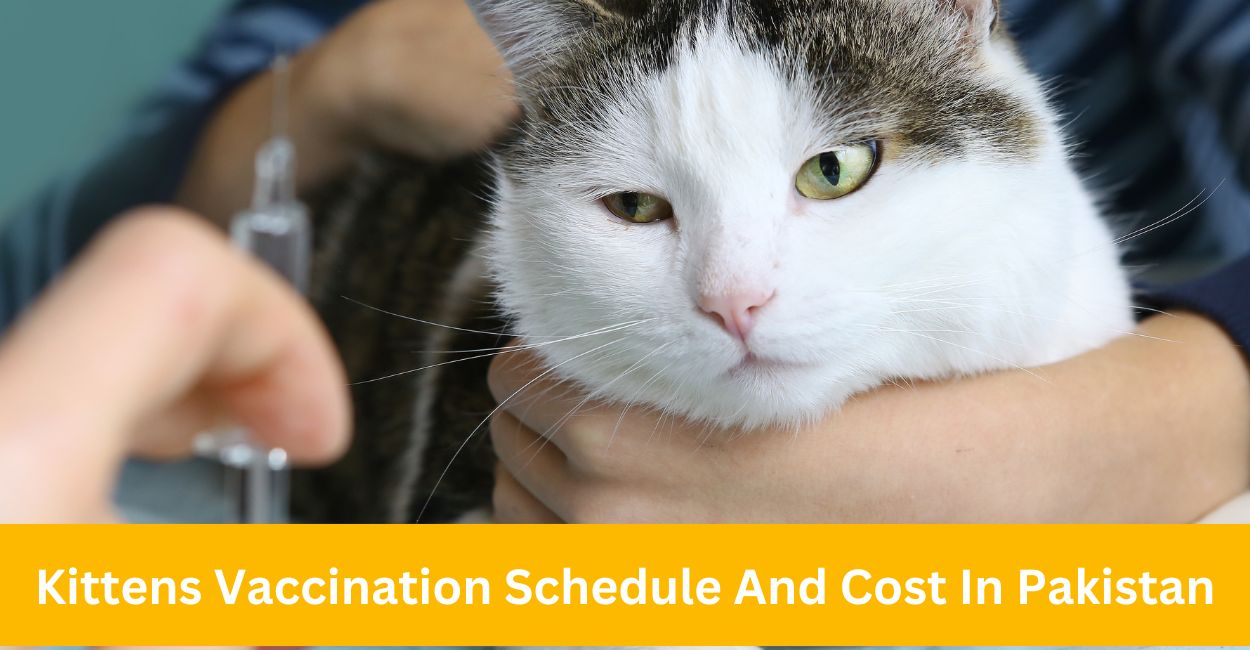Caring for Cats, Cat Health
Kittens Vaccination Schedule And Cost In Pakistan
Table of Contents
What Is Vaccination?
Vaccination is a significant instrument for diminishing and killing possibilities of deadly ailment, which has been utilized effectively for a long time, and presently it is normally rehearsed by veterinarians. Cat is the most loving pet so the protection of felines against lethal infections is a lot important. So, You must vaccinate your kittens.
Why Vaccination Is Important?
Vaccination helps to shield your kittens from serious irresistible or infectious sicknesses. It additionally keeps them from giving anything terrible to different creatures in your space. Vaccinating your little cat is one of the main things you ought to do in your initial not many weeks as a kitten proprietor.
Types Of Kittens Vaccination
There are two types of kitten vaccination,
- Core Vaccines
- Non-Core Vaccines
Core Vaccines
Vaccines that are powerful against major and most common sicknesses. You must vaccinate your kittens with these core vaccines at any expense for their safe solid life. These illnesses are:
- Cat Panleukopenia
- Cat Calicivirus Infection
- Rabies
- Cat Rhinotracheitis
Non Core Vaccines
These are discretionary antibodies and give invulnerability against less pervasive infections. These are not however much essential as core immunizations may be. The following specialists cause these diseases:
- Cat Leukemia Virus
- Cat Immunodeficiency Virus
- Bordetella bronchiseptica
- Chlamydia felis
Cat Vaccines Available in Pakistan:
- Fel-O-Vax (A core vaccine that vaccinates your feline against 3 significant viral sicknesses i.e Feline Panleukopenia, Feline Rhinotracheitis, and Feline Calicivirus.
- Biofel PCH (This antibody covers the very 3 viral sicknesses)
- Biofel PCHR (Notwithstanding Biofel PCH, Biofel PCHR likewise gives insusceptibility against rabies)
- Rabisin (The most usually utilized immunization against rabies)
When Should Kittens be Immunized Or Vaccinated?
Your kitten will require two vaccination sets to kick them off – their first set at nine weeks old and a subsequent sponsor set at 90 days old. After this, cats and felines generally need ‘booster’ immunizations one time per year.
Until you completely vaccinate your cat, you must keep her inside.
Vaccination Protect Against Which Diseases?
Vaccination commonly protects against the following diseases,
- Feline influenza (cat herpes infection and cat calicivirus)
- Cat irresistible enteritis
- Cat leukemia infection
Your vet can exhort which inoculations your feline or little cat should assist with safeguarding them from irresistible illnesses. Whenever you get your little cat, one of the main things you ought to do is register them with a nearby vet, who will want to do the immunizations your cat needs.
How Long is Vaccination/Inoculations Effective?
A few antibodies give as booster infusions consistently. Your vet will give you an inoculation record, which you’ll have to be careful of.
Kitten Vaccination Schedule
Right off the bat, de-worming is done at 40 days old enough then following 10 days of de-worming or 7-multi week old enough, and following seven days of de-worming, the first shot of Vaccine (Fel-O-Vax OR Biofel) is given. Following 3 weeks of this dose, the second shot is given. Then, at that point, following 3 weeks, 2 shots of Rabies vaccination are given within three weeks. Presently your feline is secured and the yearly booster dose is given consistently.
Cost Of Kitten Vaccination In Pakistan
Kittens get upper respiratory and distemper combination vaccinations every 3-4 weeks until they are four months old enough. These immunizations can cost anywhere from Rs 2,500.
Frequently Asked Questions:
What are the side effects of kitten vaccinations?
In gentle cases, which comprise most of the hypersensitive responses to immunizations, felines might foster hives, irritation, redness and enlarging of the eyes, lips, and neck, and gentle fever. Serious unfavorably susceptible responses might cause breathing difficulties, vomiting, diarrhea, retching, pale gums, and breakdown.
How long do cat vaccine side effects last?
Lethargy, a slight fever, and some gentle uneasiness are the most common side effects pets get from antibodies. This is a typical response to inoculations, and the side effects ought to be gentle and just last one or two days.


